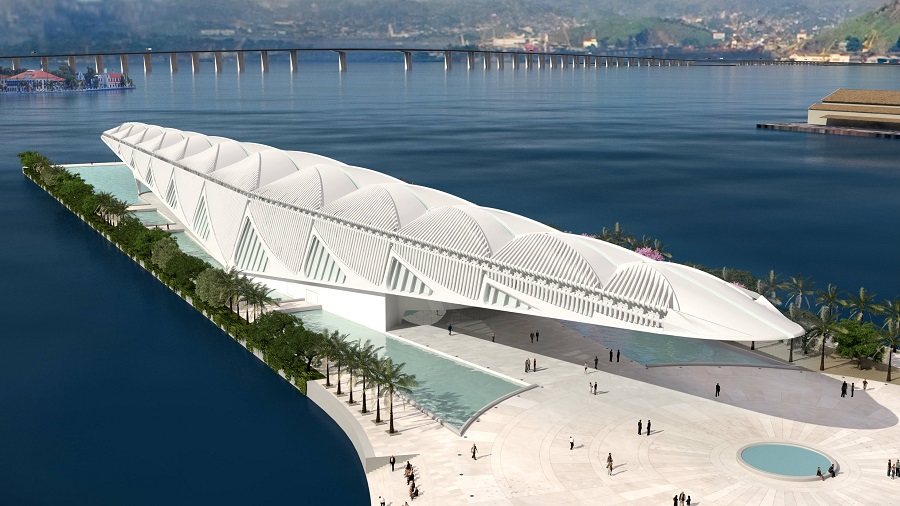Travel
Brazil’s president hopes new Rio museum dedicated to science will be a must see site

The Museum of Tomorrow in Rio de Janiero in Brazil.
(Photo from Santiago Calatrava, LLC / e-architect website)
RIO DE JANEIRO—In this city graced with striking granite rock formations known around the world, a new science museum is angling for the title of must-see destination.
The Museum of Tomorrow, inaugurated Thursday, is a mammoth structure designed by famed Spanish architect Santiago Calatrava and has elicited comparisons with the skeleton of an enormous whale or the fossilized remains of a long-extinct giant squid. The long, white steel and glass building juts out into the black waters of Guanabara Bay.
The million space holds a high-tech collection dedicated to science and the environment, and the museum’s backers hope it will join Rio’s other near-obligatory tourist destinations including Sugarloaf Mountain and the Christ the Redeemer statue.
President Dilma Rousseff, who joined a crowd of VIPs for the opening, hailed the museum as “beautiful” and “innovative,” saying she believes it will become part of the city’s historical fabric as part of efforts to renovate Rio’s long derelict port area.
“Soon the Museum of Tomorrow will … transform this whole region here into a great location symbolizing the history of our country,” she said.
The event was a respite from the recent barrage of bad news for Rousseff, who is battling the opening of impeachment proceedings in congress as Brazil’s economy continues to struggle. Flanked by allies including Rio Mayor Eduardo Paes, Rousseff was warmly received by the crowd. She gave the press a wide berth.
Paes said the Olympics, which Rio is hosting next year, helped make this ambitious project possible.
Initially slated for delivery last December, the museum is the centerpiece of a $2 billion remaking of the port district, long a centre of Afro-Brazilian culture and the birthplace of samba.
Rio’s “Porto Maravilha,” or “Marvelous Port,” project also saw the inauguration two years ago of another museum dedicated to art celebrating Rio, on the same revamped square as the Museum of Tomorrow.
However, another recent addition to Rio’s cultural scene closed down Sunday, sending shock waves through the art world. Opened to considerable fanfare in 2013, the privately owned Latin American art centre, Casa Daros, partly blamed the expense and delay of bringing pieces back and forth from the collection’s headquarters in Switzerland.





















